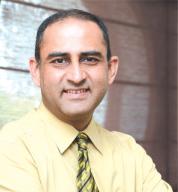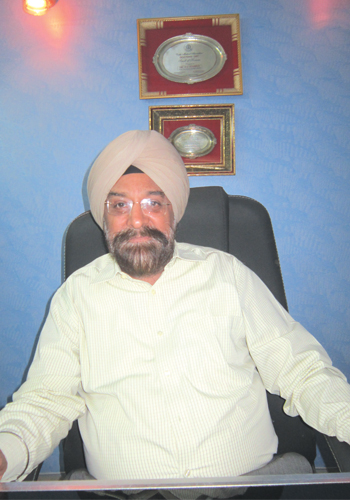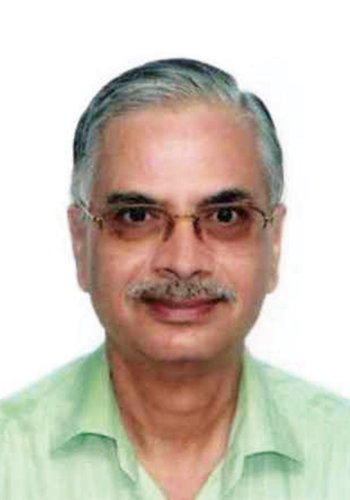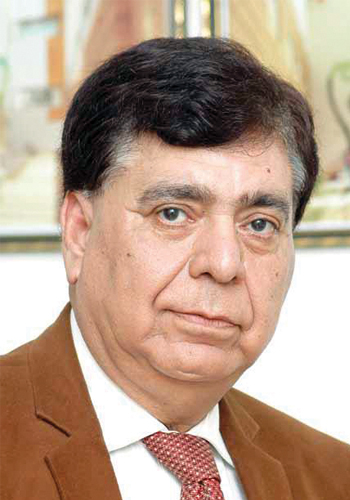
Questions Prof Anupam Sibal, Group Medical Director, Apollo Hospitals Group, New Delhi, when asked about stringent quality control and technological usage in hospitals. In conversation with Shahid Akhter, ENN, he shares his optimism in healthcare and the best practices in Apollo hospitals
Apollo Hospitals is believed by many to be the most preferred destination in healthcare delivery. Why?
Since its inception in 1983, we have strived to develop Apollo into one of the best multi-speciality hospitals chain. Be it the doctors, infrastructure or technology, we have always been driven by the passion of patient first. With over 9000 beds, and almost all specialities in 54 hospitals, we can certainly claim to be the most sought-after destination in healthcare. Our passion can be gauged from the fact that Indraprastha Apollo Hospitals became the first hospital in India to be internationally accredited by the Joint Commission International (JCI) and today we have 8 JCI accredited and 10 NABH accredited Apollo hospitals.

What initiatives have been taken by Apollo Hospitals in the field of medical research?
The Apollo Hospitals Educational and Research Foundation (AHERF) is an independent entity recognized by the Department of Scientific and Industrial Research (DSIR) as a Scientific and Industrial Research Organization(SIRO), to carry out research, educational and training programmes in quest of quality healthcare. AHERF, in collaboration with other institutions in India and abroad, is working on several research projects that have a bearing on the health, social, economic and industrial needs of India. Some of the research areas are clinical aspects of stem cells, molecular diagnostics, personalized medicine, genomics, new trials in therapies and drugs, integration of traditional Indian medicine into modern healthcare, etc. Our consultants are actively involved in clinical research and publish many research papers in high impact journals. Our Apollo Medicine journal is indexed on Science Direct and included in the Directory of Open Access Journals.
Please trace Apollo Hospitals contribution to medical education?
In a tertiary healthcare institution, clinical excellence shares a symbiotic relationship with academic excellence with emphasis on training and research. Various post graduate and post doctoral medical education programs are being offered at Apollo Hospitals group. Fifteen hospitals of the Apollo group currently offer the Diplomate of National Board (DNB) and Fellowship of National Board (FNB) programs in 38 specialties and subspecialties. Besides these, other post graduate diploma and fellowship programs accredited to national and international universities are being offered. There are a 1000 postgraduate medical trainees at Apollo currently. Our first undergraduate medical college, Apollo Institute of Medical Sciences and Research (AIMSR) was started at Apollo Health City, Hyderabad, in July 2012. We organize close to a 100 major CME programmes every year. Eminent medical experts from around the world come together to discuss latest developments in various specialties including lectures, live-surgical cases, discussions and so on. We organized the Cancer Conclave in Chennai this year with participation from over 500 eminent pioneers, researchers, medical practitioners from India and across the world. There are web broadcasts on a wide range of our ongoing CME programmes, and other such academic events. We hold an annual International Congress on Patient Safety which is attended by over 850 delegates and 75 speakers every year.
How does accreditation substantiate the level of quality?
Accreditation translates into patients satisfaction, and this comes from the quality of care that one gets. We aspire for the highest-level of quality care going beyond accreditation and to achieve this we have various protocols in place. Standardization of processes and measurement of outcomes ensure quality care for the patients which is objective, trackable and amenable to improvement wherever required. The Apollo Standards of Clinical Care (TASCC) was implemented across Apollo Hospitals to standardize processes and outcomes for clinical excellence and patient safety. It encompasses six initiatives – Apollo Clinical Excellence dashboard (ACE), Rocket ACE (RACE), Apollo Quality Program (AQP), Apollo Mortality Review (AMR), Apollo Incident Reporting System (AIRS) and Apollo Critical Policies Plans and Procedures (ACPPP). ACE and RACE are clinical balanced scorecards incorporating 25 clinical quality parameters involving complication rates, mortality rates, one-year survival rates and average length of stay after major procedures with international benchmarks. TASCC scores showed a steady increase from 216 in April 2012 to 293 in Dec 2013 showing increasing standardization of processes and improving outcomes. 90,000 patients admitted to Apollo every quarter benefited.

Apollo Hospitals
| >> Touched 39 million lives>> 9 million Preventive Health Checks>>Patients from 120 countries>> 1,52,000 Cardiothoracic Surgeries>> 10,000 Joint Transplants Replacements in 5 years>> First Liver Transplant in Children and Adults>> First Multi Organ Transplant
>> Over 1300 Kidney Transplant >> Over 500 Bone Marrow Transplantation >> Over 1700 Liver Transplants >> Busiest Solid Organ Transplant Programme |
What technological advancements can one expect at Apollo?
We are on the forefront of investment in technology because it is a crucial pillar of healthcare. If a new technology pops up, we should be aware of it, and certainly incorporate it, if found to be productive and useful, so that our patients could get the maximum benefit. To name a few, we have with us 3 Tesla MRI, PET-CT (4), Cyberknife, Novalis Tx (5), 320 Slice CT, HIFU, DaVinci Robotic systems (4), PET-MRI, Brain Lab Navigation System, HDR Brachytherapy, DSA Labs, Hyperbaric Chambers, Fibroscans and Endosonography. The list is fairly long. We are also expecting to install the first proton-therapy unit in South Asia in 2016.
Apollo is hailed as a hotspot in medical tourism. Please share your achievements so far.
At Apollo Hospitals, we strongly believe that India will find its rightful place as the Global Healthcare Destination. We have developed international delivery capabilities and demonstrated our global excellence in almost all specialities. We treated over 1,10,000 foreign patients from across the world last year.
Be a part of Elets Collaborative Initiatives. Join Us for Upcoming Events and explore business opportunities. Like us on Facebook , connect with us on LinkedIn and follow us on Twitter , Instagram.













